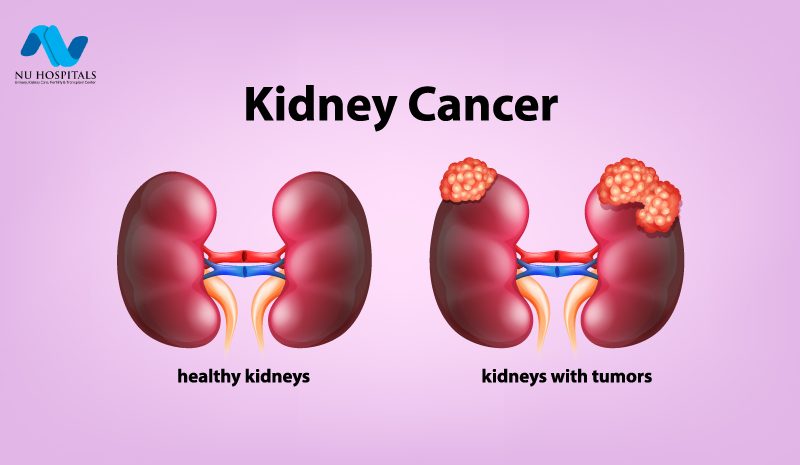Kidney Cancer
Kidney cancer occurs when the healthy cells in one or both kidneys grow abnormally to ultimately form a cancerous tumor or lump. Kidney cancers are rare amongst younger age groups. Renal Cell Carcinoma has been observed to be the most common type of adult kidney cancer. However, not every tumor is cancerous and some can even be benign.
Kidneys help filter blood by removing waste materials in the form of urine. In case of a tumor, this functionality is disturbed and the tumor can spread, and hence the patient would need professional care.
What are the symptoms of kidney cancer?
Although kidney tumors generally don’t cause pain or show any symptoms when they are of smaller size, there are a few commonly observed signs of this disease, such as:
- Blood in the urine
- Pain in the side, abdomen or back that persists
- A lump in your abdomen
- Loss of appetite and significant weight loss for no known reason
- Anemia and fatigue
What causes kidney cancer?
It is difficult to attribute a single reason for kidney cancer. However, there are a few conditions which may put you at higher risk of developing cancer, such as:
- Smoking
- Obesity
- Chronic high blood pressure
- Von Hippel-Lindau syndrome
- Tuberous sclerosis
- Family history of kidney cancer
How is kidney cancer diagnosed and treated?
Kidney cancer is very hard to diagnose as it shows minimal to no symptoms of its existence in the body and cannot even be detected in any physical examination/blood tests. But in a routine check-up, if a doctor suspects kidney cancer, he / she will have a range of tests performed to further confirm the presence of cancerous cells. These tests include Ultrasound, Urine test, CT Scan / MRI, Blood Chemistry studies, and sometimes biopsy.
If the cancer is confirmed, it requires staging. The most common staging mechanism used to define the cancer rests on three key pillars:
- T determines the tumor size
- M determines the cancer-spread
- N determines if it has spread to lymph nodes which drain the tumour tissue
A thorough evaluation of these studies along with determining the stage of cancer (Stage I, stage II, Stage III, and Stage IV) will help the doctor employ any of the below treatment procedures:
- Active Surveillance
- Surgery
- Targeted therapy
- Chemotherapy
- Radiation to relieve pain and symptoms

